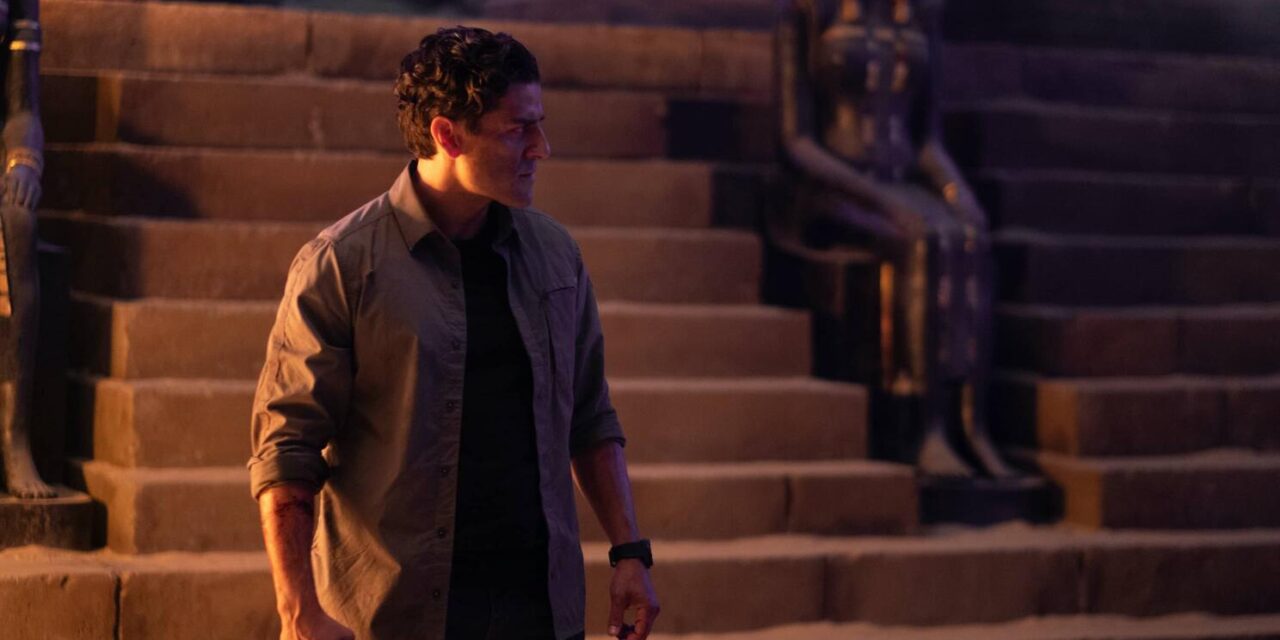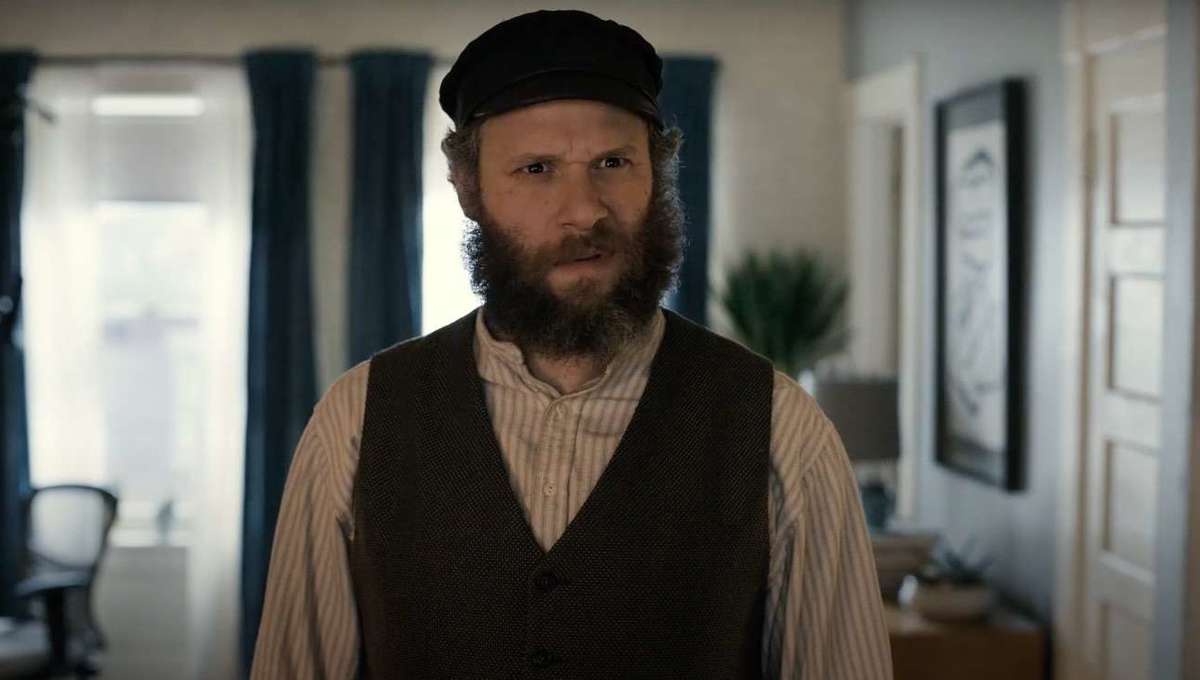Keep up with our reviews for the entire series of Moon Knight here.
“It’s a hard thing, exhuming the pain of the past. It’s easy to get stuck — fixated on what’s hurt us.”
“The Friendly Type” changes settings and moves the story to Egypt, where things will get unearthed physically and mentally. Arthur is hunting for Ammit’s tomb, Marc, who is solely in control, goes to stop him, and Layla heads there to help Marc. Layla’s motivations are more fleshed out than in her introduction during “Summon the Suit.” It’s been ten years since she’s been to Egypt after her father’s death. Director Mohamed Diab and co-writers Beau DeMayo, Peter Cameron, and Sabir Pirzada combine many tonal elements to show that Layla can hold her own and show there was a time when she and Marc were in sync. Moon Knight‘s third episode has adventure, fight sequences, fantasy, and moments of reflection, all within a 50-minute runtime.
During Layla’s conversation with Marc on the boat, she tries to cut through the tough exterior he exudes. Stephen is the more empathetic personality, but Marc holds on to control for dear life in this episode. He’s a man full of secrets — and as Arthur eludes towards the end, Marc might be holding onto a skeleton in the closet, which could shatter the woman he loves — besides the threat of Khonshu wanting to use Layla as an avatar. But why use Marc and Stephen? Khonshu operates as the heavy hand of justice and often pushes Marc to act with reckless abandon. It’s why he hates Stephen’s personality so much — as far as brutality, Stephen pulls Marc from the brink.
This makes the “blackout” sequences more interesting because it hints at a third personality. If neither Marc nor Stephen are killing people, somebody else is (maybe Jake Lockey?). However, the two personalities are rarely on the same page, so Marvel could be playing off of that. “The Friendly Type” puts Khonshu’s intentions front and center, primarily inhabiting someone with DID. Is Khonshu right in alerting the gods to Arthur’s plan to unleash Ammit? Yes. Is using someone he knows who is struggling with their mental health the way to do it? Probably not. Most superhero stories have a clear-cut protagonist and antagonist. Moon Knight is operating in a shade of gray.
A conflict that comes up in Eternals is the concept of meddling in human affairs. The Celestials ordained the Eternals to be observers only and only to intervene when the Deviants stirred up trouble. It’s something Druig (Barry Keoghan) has an issue with — why have extraordinary powers and stand around letting war and murder happen? This theme comes up first in Captain America: Civil War when Tony Stark (Robert Downey Jr.) and Steve Rodgers take opposite sides over the Sokovia Accords and if The Avengers should act without oversight. In the MCU, the dynamics of power and how to wield it has been a through-line.
Khonshu has been in trouble with the gods because he acts first and asks questions later. But in doing that, he has profoundly impacted the lives of two men. Arthur has a grudge against him—a need to atone for his time being Khonshu’s avatar fuels his current mission. Steven/Marc is tethered to him for the rest of his life out of the fear of what will happen if they are no longer linked. “The Friendly Type” has a good amount of action balanced out with Steven using his brains at the end searching the stars. If only Marc weren’t so stubborn, they could use each other as a resource.
We’ve reached our “all is lost” moment at the halfway point. Arthur is on the path to victory, and Steven and Marc are separated from Khonshu. Moon Knight seems to use balance like a dollar on a string and then pulls it away from you once you’ve got a handle on it. Audiences are preparing to see many instances of characters through dimensions in a couple of weeks. Still, Khonshu and Steven turning the stars back is an impressive feat.
Photo Credit: Marvel Studios













